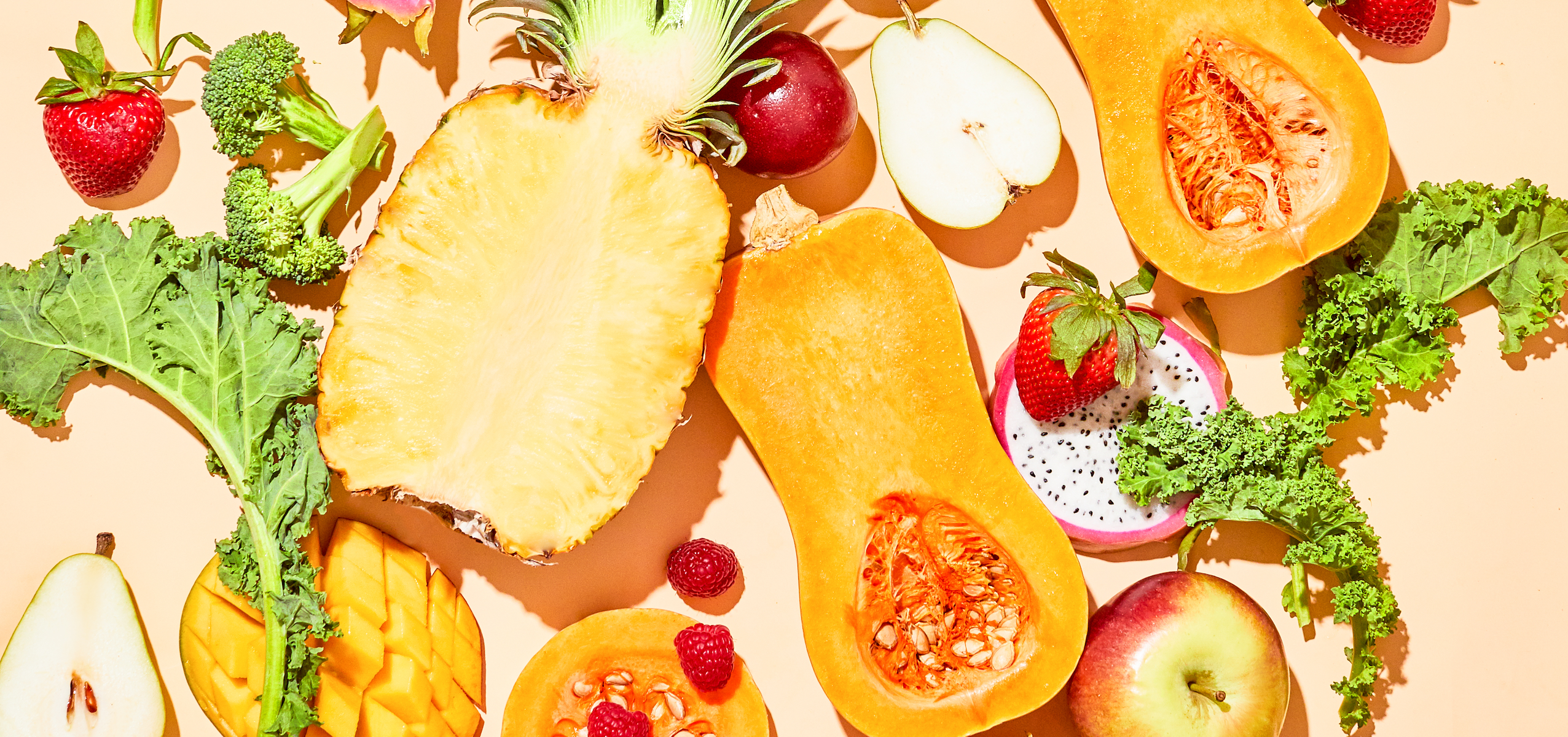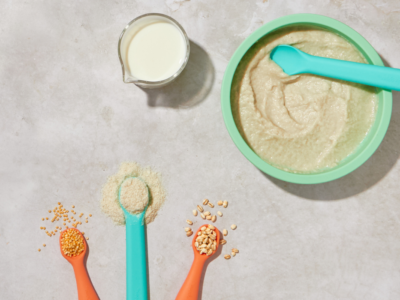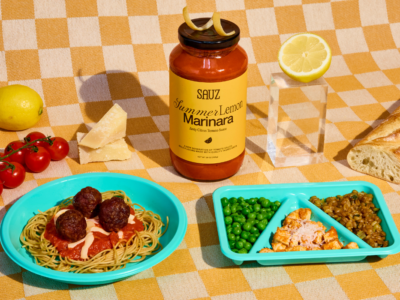What we eat absolutely plays a key role in strengthening our immunity, we really are what we eat. These simple nutrition tips can help support you and your babe’s immunity so they can function at their best!
1. Eat a balanced diet.
On their own, carbohydrates spike blood sugar, causing inflammation in the body. The fix? Incorporate protein and fiber with a carbohydrate to make the post-meal blood sugar rise more gradual, which is better for our overall health.
Pro tip: Instead of serving pasta alone, make it a smaller portion of your meal and give a protein (like chicken or ground beef) and veggies (like chopped spinach, broccoli or kale for fiber!) time in the spotlight! If your little one is in the pureed food phase, I love the balance of protein and fiber in blends like Little Spoon’s Kale Avocado Green Apple Chia.
2. Incorporate healthy fats.
“Fats” sometimes get a bad rap, but we actually need healthy fats—it’s all part of that balanced diet. Let’s talk about omega-3 and omega-6 fats. These are called essential fatty acids because our bodies cannot make them, so we have to eat them. What we want is for these two fats to be in balance. However, most Americans consume many more foods that are rich in omega-6 fats compared to those rich in omega-3s, and this imbalance can promote inflammation.
The most common way we consume omega-6 fats is through vegetable oils that are often added to processed foods or used in high heat cooking; examples include corn, sunflower, and soybean oils. The food sources richest in omega-3 fats are fatty fish (like salmon, mackerel and sardines) and pasture-raised or omega-3 enriched eggs. Other sources like ground flax and walnuts have some, too. To promote balanced immunity, most people want to work on increasing their intake of omega-3 fats while reducing their intake of omega-6 fats so they are as close as possible to a 1:1 ratio.
Pro tip: Choose pasture-raised eggs if you can to increase you and your baby’s omega-3 intake. If you are still breastfeeding and your physician is OK with it, consider taking an omega-3 supplement—this healthy fat will be taken in by baby too. Studies have even shown that besides being anti-inflammatory, taking this supplement can help with baby brain development as well as reduce the risk of postpartum depression. As always, remember to check with your pediatrician before introducing anything new to your little one’s diet. A great option for mom and baby is ground flaxseed—you can blend it into yogurt or a smoothie. Little Spoon has your babe covered with their fan-favorite Sweet Potato Apple Blueberry Flax blend.
3. Enjoy vitamin C-rich foods.
Vitamin C is a key nutrient for keeping our immune system working at its best. It helps to protect our body from harmful pathogens, and studies have shown that when we don’t take in enough of it, we are at higher risk for infection. Oranges are the poster child for vitamin C, but there are lots of other foods rich in this nutrient, too! Did you know that one cup of raw broccoli has just as much vitamin C as an orange? And a red bell pepper has double!
Pro tip: Vitamin C is water-soluble and sensitive to heat, so if you are going to cook a vitamin C-rich food (like broccoli), aim to lightly steam or sauté to preserve the benefits of this incredible antioxidant.
4. Feed your gut.
The health of the gut and immune system are closely linked. In fact, about 70-80% of our immune system is in our gut. Both prebiotics and probiotics are key to keeping you and your gut healthy. Probiotics are the healthy bacteria that live in our gut, and are found in any food that is fermented—think quality yogurt and Kefir, kimchi, sauerkraut, and miso. Prebiotics are the food those healthy bacteria eat to keep thriving. Foods with soluble fiber are prebiotic-rich foods—that’s where beans, oats, ground flaxseed, chia, berries, apples, and potatoes come in.
Pro tip: Just a spoonful or two of kimchi will give you great probiotic benefits. And although kombucha is a good source of probiotics, try to keep your serving small (½ to ⅓ the bottle, depending) so as not to overdo it with sugar. Beans are a good source of protein and fiber, and there are so many different options to try. Little Spoon has some great blends incorporating beans like chickpeas and white beans for your babe.
5. This one’s easy: hydrate!
Water is key for healthy digestion and detoxification of the body. Yet, many of us aren’t drinking enough water. Some key signs to keep in mind (for you and your mini) that may signal a little dehydration include: irritability, fatigue, and less frequent and darker color urine.
Pro tip: To stay on top of hydration for you and your little one, aim to have water first thing after waking (whether it’s in the morning or from a nap). We are always at least a bit dehydrated, so drinking water when you wake up is a great opportunity. Otherwise, keep water around you and your baby’s environment for easy access.
Besides nutrition, sleep and stress management are key for supporting immunity. If you are having trouble winding down, consider an app like Headspace for their guided meditations or another self-care practice to soothe your mind. For baby, soothing music can do the trick—a good noise machine can truly work wonders!
Of course, we are all individuals so please speak with your physician or pediatrician before making dietary changes, particularly if on medications or with a past medical history.



